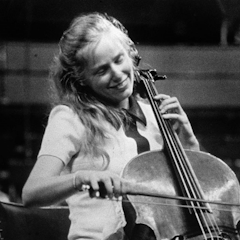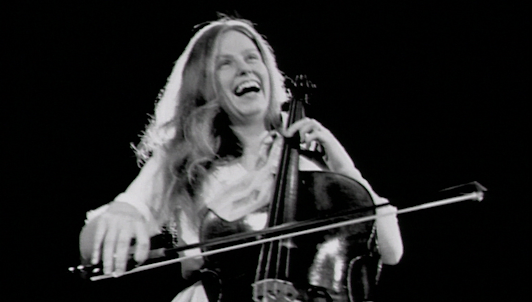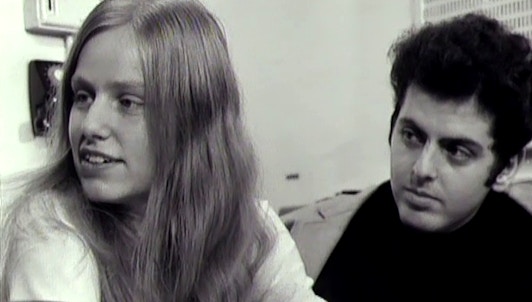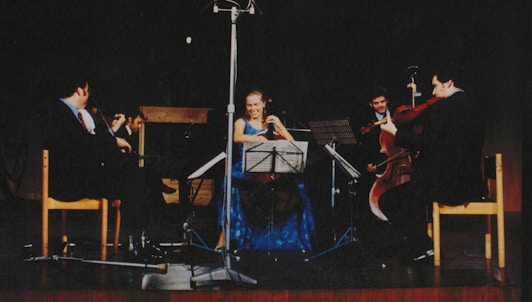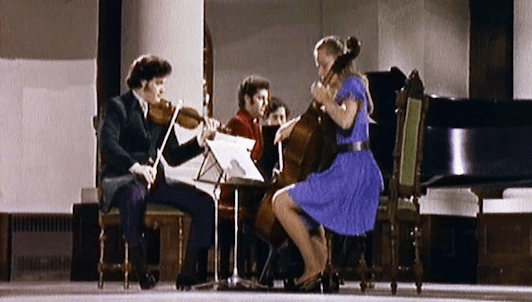Jacqueline Du Pré was born in Oxford, January 26, 1945. At the age of four she already had a real talent for the cello. She studied at the Guildhall School of Music in London with William Pleeth, then in France with Paul Tortelier, in Switzerland with Pablo Casals and with Mstislav Rostropovich in Moscow. At the age of 13, William Pleeth made her play the Cello Concerto by Elgar, which she managed to memorize in only four days, and which she performed, according to Pleeth, "almost perfectly". Afterwards, the Concerto, played for the first time when she was barely 17 years old, at the Royal Festival Hall in London in 1962, became her favourite piece.
She made her debut in public at the Wigmore Hall a year before, in March 1961, at a time when she had already received a gold medal at the Guildhall School ant the Queen's Prize of Music. In 1965, she recorded with the London Symphony Orchestra the most important performance of her career, the Concerto by Elgar conducted by Sir John Barbirolli.
In 1967, she married the pianist and conductor Daniel Barenboim, with whom she regularly practiced and recorded chamber music, together with their friends Itzhak Perlman, Zubin Mehta and Pinchas Zukerman. One of their most notable recorded performances is the Schubert quintet, The Trout, directed by Christopher Nupen (see Perlman, Zukerman, Du Pré, Mehta, Barenboïm rehearse and play The Trout). In the same style, Nupen also shot a performance of Beethoven’s trio “The ghost".
In 1972, at the age of 27, Jacqueline du Pré’s career was tragically cut short by multiple sclerosis. In addition to her extraordinary talent she revealed as well to the critic and her public her strong and courageous character. She stopped playing the cello in 1973. In 1976 she was awarded the Order of the British Empire, and in 1980 she received the British Oscar for the musician of the year.
She died in London on October 19, 1987, after 14 years of illness. She bequeathed her Davidov Stradivarius (with which she recorded the Elgar concerto) to Yo-Yo Ma.
